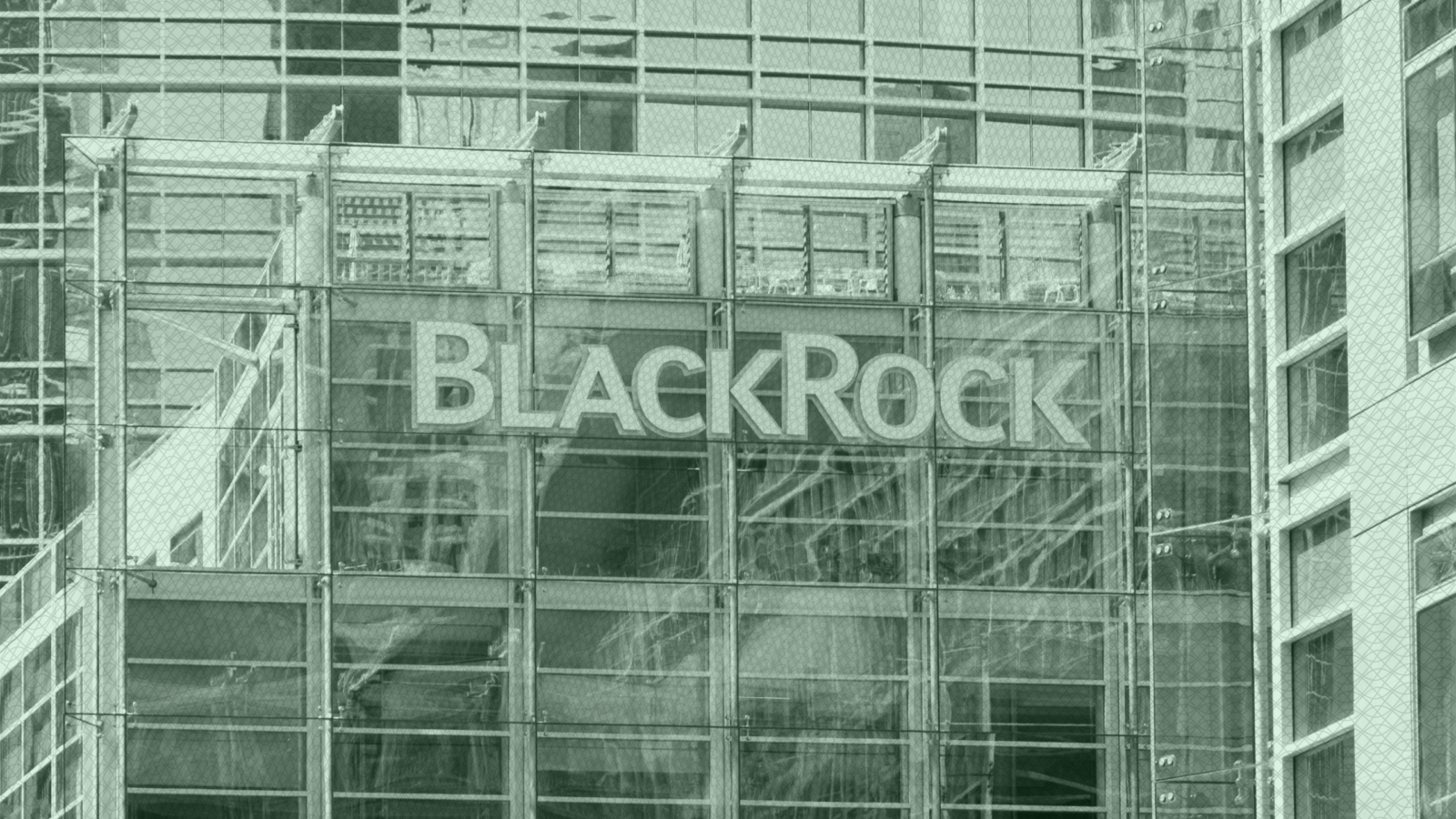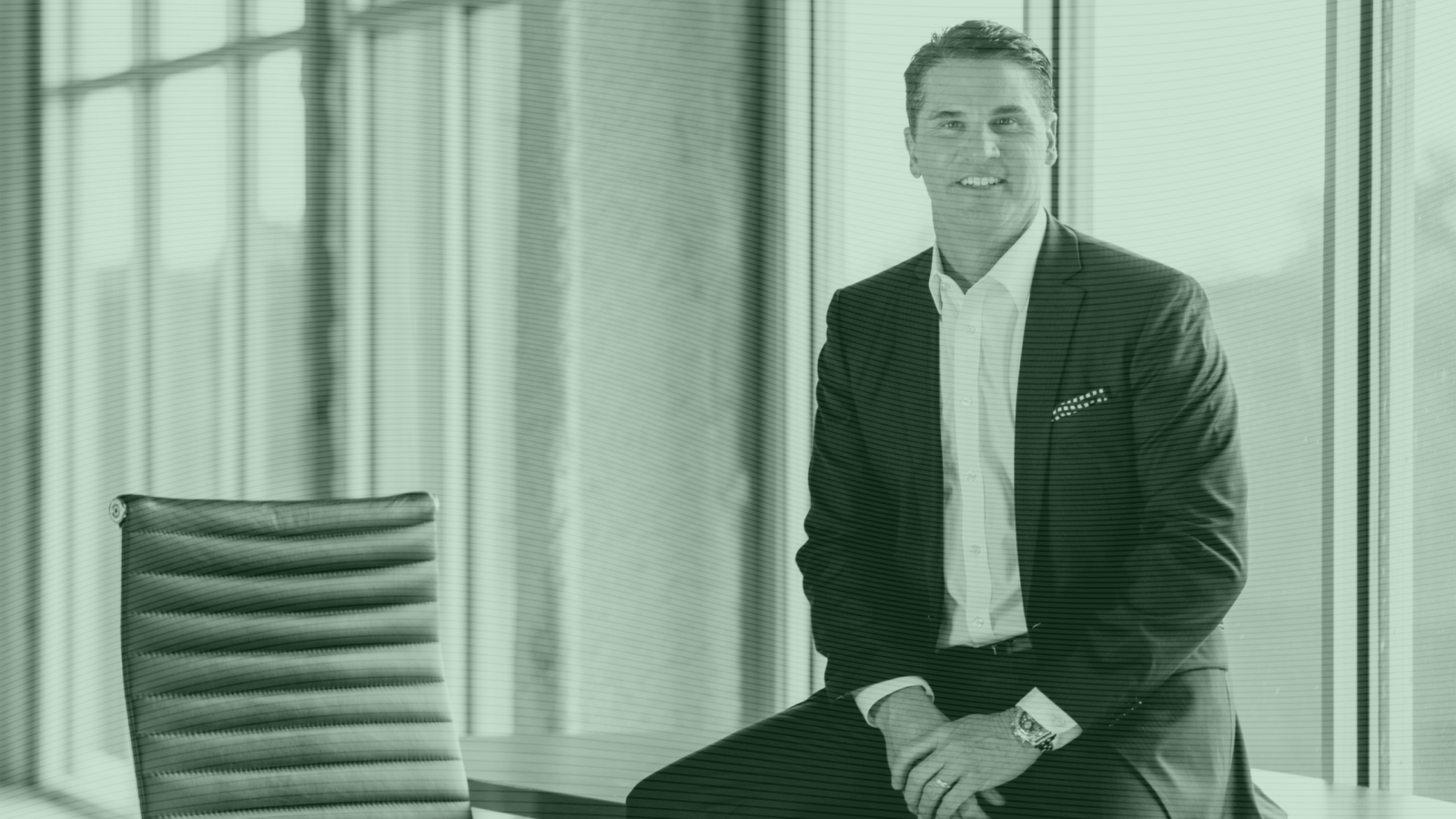Good morning.
It’s time for the talk, and we don’t mean the birds and the bees.
In a recent survey from Fidelity, 56% of Americans said their parents never talked to them about money. The majority of respondents considered their wealth self-made, and one-third of baby boomers said they don’t feel a financial plan is necessary. It could explain why clients tend to shy away from talking about their finances with their children, or drag their feet when it comes to creating an estate plan.
But, with the Great $84 Trillion Wealth Transfer already underway, the talk is going to have to happen — and the sooner the better. We just hope clients don’t act it out with their kids’ toys.
Inside BlackRock’s Latest $12B Private Assets Deal

If private placements are the latest investments flooding Wall Street, BlackRock’s Larry Fink is about to make it rain.
The CEO of the world’s largest asset manager announced three mega deals this year, including an almost $12 billion buyout of the New York-based private-credit manager HPS Investment Partners this week. BlackRock manages some $11.5 trillion in assets overall, and the deal would boost its private-assets war chest to a reported $600 billion — on par with goliaths like Apollo Global and KKR. It is also expected to increase private markets fee-paying AUM and management fees by 40% and 35%, respectively. It’s a significant push toward Fink’s dream to “index the private markets” and package them up in easy-to-use products like exchange-traded funds.
“BlackRock is a behemoth,” said Kelly Ann Winget, founder of the private equity firm Alternative Wealth Partners. “Their dominance in the public markets has left them little room for growth.”
Saving Private Ryan
Once a murky corner of the investing landscape, private investments can offer exposure to deals not on traditional public exchanges, like home lending or real estate investing. Earlier this year, BlackRock struck a deal with Global Infrastructure Partners to buy the company for $12.5 billion, before deciding to take over private-market research shop Preqin for $3.2 billion in July. The HPS deal completes a stunning trifecta for the company, which will be able to offer a whole host of illiquid investments.
“No one’s going public anymore,” said Aniket Ullal, head of ETF research at CFRA, adding that the number of public companies has been dropping for decades. “There’s simply more private equities and more private debt available — and a lot more opportunity.”
The challenge will be tracking these notoriously illiquid assets. Investments in private debt or infrastructure can tie up money for years, and while public equities are bought and sold daily, private assets are sometimes only priced quarterly or annually. It makes packaging them for resale much more difficult … but that’s not stopping asset managers from trying.
The Race Is On. Apollo Global teamed up with State Street in September to propose a private-credit ETF that is still awaiting regulatory approval; KKR and Capital Group are also slated to launch two hybrid funds next year. A study from Cerulli Associates found:
- Financial advisors already own roughly $1.4 trillion in less-than-fully-liquid assets in the US.
- While just 13% of alternative assets are held by retail investors, that’s expected to jump to 23% in the next three years.
Winget said clients can start small and local by looking for opportunities to invest in community-based businesses or entrepreneurs. Advisors can also help them research self-directed strategies. “This is where private investors have an incredible opportunity,” she said.
Learn From The Success of Fast-Growing Independent Advisors
Driven by a desire for greater autonomy and deeper client alignment, advisors are breaking away from traditional broker-dealer models, boosting the number of RIAs to an all-time high.
To help you understand this shifting landscape, Betterment surveyed 500 independent advisors managing $10–$250 million in AUM to uncover how they’re thriving in today’s financial advisory environment.
Here is a sneak peek of what you’ll learn when you download the report:
- 401(k) management is essential: Over 80% of advisors manage 401(k) plans alongside wealth management.
- Tech drives growth: 4 in 5 advisors are using AI to increase efficiency, with many more planning to adopt it.
- Client engagement is key: High-growth firms prioritize client communication for business success.
Get access to insights that will make your business thrive in 2025 – download the full survey here.
TradePMR’s Robb Baldwin on Robinhood and the American Financial System

When TradePMR CEO Robb Baldwin was a boy, his grandfather showed him all the stock tickers published in The Wall Street Journal. Three and a quarter here, two and a quarter there. The company prices became a special language.
Decades later, the custodial platform he founded in 1998 was acquired by investment goliath Robinhood for $300 million, paving the way for the next chapter in his financial services career. It’s also a push toward the next generation of investors. “At every industry conference I’ve ever been to, we’ve always been formulating: ‘How do we meet our clients’ kids? How do we hold on to those assets?’” he told The Daily Upside. “They’re at Robinhood.”
The free-trading app turned financial services powerhouse has amassed 24 million users since its inception in 2013, most of them younger investors who are still accumulating their wealth. It has also built a tech platform that can go toe-to-toe with anyone in the industry, he said.
Advisor Upside sat down with Baldwin this week next to a lit-up Christmas tree at Rockefeller Center in New York City.
AU: Robinhood is geared toward retail investors. How does that jibe with wealthier clients in our industry?
Robb Baldwin: There are people who have, say $50 million to $100 million who still do their own thing on a platform like Robinhood because that’s their only way to play. It’s very difficult to call your advisor and say, “Hey, in my current asset allocation, would you mind adding XYZ? It’s a biotech. It’s a really risky play.”
The advisor doesn’t want to screw up their track record or mess up numbers in their portfolio. They tell the client to go elsewhere and put it in a different bucket.
How do you see the industry changing?
We have a whole generation that is about to inherit wealth that does things totally different. I read an article the other day that highlighted how America has one of the most unbanked generations that we’ve seen in a long time, and they labeled it as if it was a bad thing. The truth of the matter is that we have a lot of youth that don’t feel the need to have a bank account, and that’s OK. They’ll use Cash App, Venmo, Robinhood, or whatever, and that’s where they put their money, get their paychecks deposited, and have interest-bearing accounts. They don’t need a bank anymore.
If you want to see where we’re going in America, look at Revolut [based in London]. They have 50 million users globally. I saw a member of our development team in Lithuania pay for something with his phone through Revolut. He said “I do everything on here — buy my crypto, buy my stocks, pay my bills, send friends money. Everything you do with five apps, I do with one.” That’s the future of American financial technology: being able to do everything in one spot.
What’s something no one is talking about?
There’s only about five providers of back office systems that run the entire wealth management industry — Broadridge, FIS, Refinitiv [now LSEG], SS&C, and Fiserv. Schwab, Fidelity, State Street, Wells Fargo, JPMorgan, and Morgan Stanley are all on these same systems, and they’ve done the accounting and the recordkeeping for these firms for years and years and years. Those systems have to change. We’re never going to be able to compete with the non-banked applications with antiquated banking technologies.
Option Calls on Bitcoin ETFs Are Both Innovative And Risky
What happens when you take volatility, add more volatility, and top it off with a splash of volatility? Options on bitcoin ETFs.
Option contracts, as the term implies, gives the holder the right to buy or sell the underlying asset at a specified price and timeframe — in this case ETFs that hold bitcoin. The iShares Bitcoin Trust ETF (IBIT) is the largest such exchange-traded fund at $47.6 billion in assets, and put and call options started trading on the Nasdaq exchange last month. Researchers from Bloomberg Intelligence found that IBIT saw a monumental amount of trading on Day One, nearly topping $1.9 billion in notional exposure.
While the strategies can be seen as the next logical step in the ascension of the leading alternative coin, critics are calling it a step into speculative investing waters. What we do know is that it’s another log on the fire of what has been a triumphant year for crypto investors — well, except for the ones that ended up with prison terms.
Extra Upside
- Bulls on Parade: Wells Fargo has some of the highest hopes for the markets in 2025.
- Stay Human: AI is helpful, but it still needs checks and balances when communicating with clients.
- 500 Independent Advisors Reveal Their Success Strategies. Discover how top advisors are using cutting-edge tech, optimizing their time, and leveraging AI for growth. The insights you need to stay ahead are inside. Download the full survey to uncover the keys to a successful practice.*
* Partner
ICYMI
- Crypto Is King: Asset managers set their sights on more than just Bitcoin as crypto enters its next phase.
- See You On The Rebound: Morgan Stanley is courting startup employees as clients amid an IPO rebound.
- Filling Gaps: Early education is a key for promoting racial equity in the advice industry.
Advisor Upside is edited by Sean Allocca. You can find him on LinkedIn.
Advisor Upside is a publication of The Daily Upside. For any questions or comments, feel free to contact us at advisor@thedailyupside.com.

